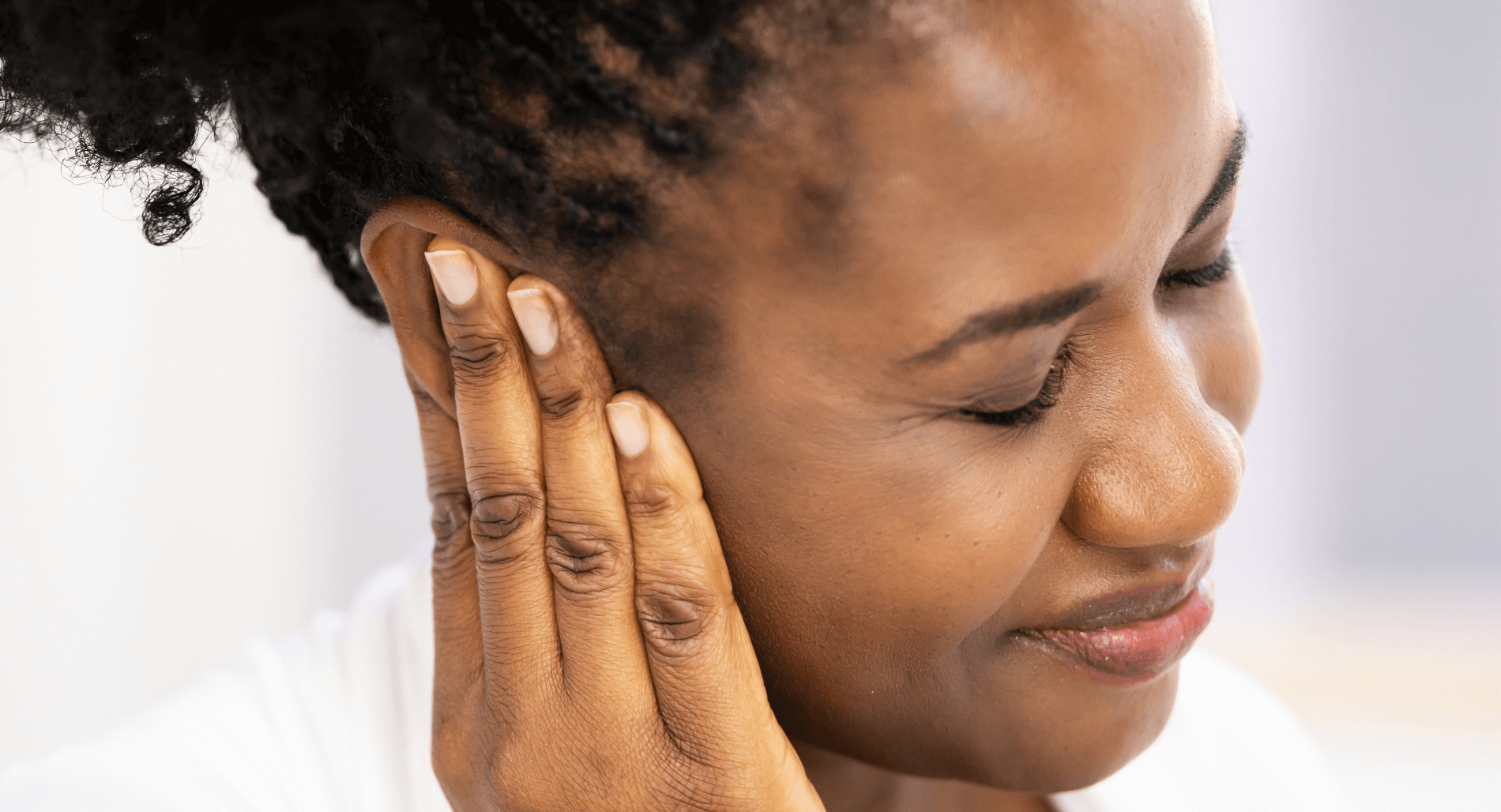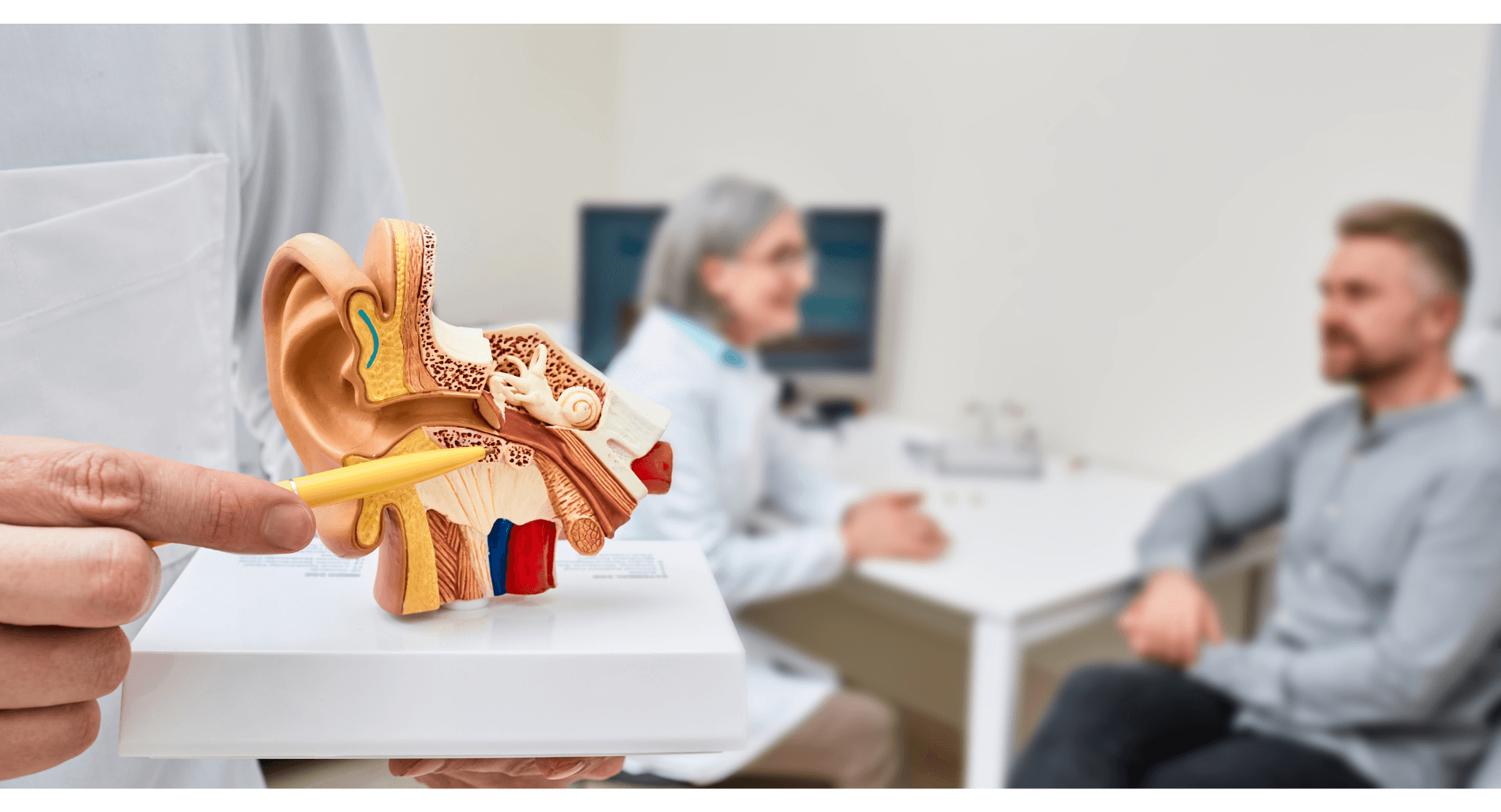
Ear pain can be a distressing experience, affecting your ability to hear, concentrate, and even sleep. Understanding the causes of ear pain and knowing when to seek help is essential for maintaining good ear health. This guide will explore the common reasons behind ear pain, discuss ways to alleviate discomfort and highlight the importance of regular hearing health exams.
Common Causes of Ear Pain
Ear pain can arise from various sources. One of the most common causes is an ear infection. These infections, often caused by bacteria or viruses, can affect different parts of the ear, such as the outer ear (otitis externa) or the middle ear (otitis media). Symptoms include pain, swelling, and sometimes fluid discharge. Another common cause of ear pain is earwax buildup. When earwax accumulates, it can harden and press against the eardrum, causing discomfort and sometimes hearing loss.
Allergies can also lead to ear pain. Allergic reactions can cause congestion and inflammation in the Eustachian tubes, which connect the middle ear to the back of the throat. This can result in a feeling of fullness and pain in the ears. Additionally, sinus infections and colds can cause similar symptoms due to the close connection between the sinuses and the ear canals.
Ear Injuries and Foreign Objects
Injuries to the ear can result in significant pain. This can happen due to a direct blow to the ear, inserting objects into the ear canal, or exposure to loud noises. Even activities such as cleaning the ear with cotton swabs can sometimes cause minor injuries that lead to pain. In some cases, foreign objects like insects or small items accidentally inserted into the ear can cause irritation and pain. If you suspect an injury or foreign object is causing your ear pain, it’s important to seek medical attention to prevent further damage.
Dental Issues and Jaw Problems
Sometimes, ear pain can originate from issues in the mouth or jaw. Dental problems like tooth infections or abscesses can radiate pain to the ear area. Similarly, temporomandibular joint (TMJ) disorders, which affect the jaw joint and surrounding muscles, can cause pain that feels like it’s coming from the ear. If you experience ear pain alongside dental pain or jaw discomfort, it may be worth consulting both a dentist and a provider to address the root cause.
Impact of Noise and Pressure Changes
Exposure to loud noises can cause ear pain and even hearing loss. Attending concerts, using power tools, or listening to music at high volumes through headphones can all lead to temporary or permanent damage to the ears. Additionally, rapid changes in air pressure, such as during airplane takeoffs and landings, can cause barotrauma, which leads to ear pain. To alleviate discomfort during flights, chewing gum, yawning, or using specialized earplugs can help equalize pressure in the ears.
When to Seek Professional Help
While some ear pain can be managed at home, there are situations where professional help is necessary. If your ear pain is severe, persists for more than a few days, or is accompanied by symptoms such as hearing loss, dizziness, or fluid discharge, you should see a healthcare provider. They can conduct a thorough examination, identify the underlying cause of your pain, and recommend appropriate treatment. Regular hearing health exams are also crucial for maintaining overall ear health and catching potential issues early on.
Preventing Ear Pain
Preventing ear pain involves taking steps to protect your ears and maintain good ear hygiene. Avoid inserting objects like cotton swabs into your ears, as this can cause injuries or push earwax deeper into the ear canal. Use earplugs or noise-canceling headphones in loud environments to protect your hearing. Stay mindful of volume levels when using headphones or earbuds. Keeping your ears dry can also help prevent infections. After swimming or showering, gently dry your ears with a towel and avoid prolonged exposure to water.
In conclusion, ear pain can result from various causes, including infections, earwax buildup, injuries, dental issues, noise exposure, and pressure changes. Understanding these causes and taking steps to prevent and address ear pain is essential for maintaining good ear health. If you experience persistent or severe ear pain, it’s important to seek professional help. Regular hearing health exams play a key role in detecting potential issues early and ensuring your ears remain healthy and functional. By taking care of your ears and addressing pain promptly, you can protect your hearing and overall well-being.

When to See a Hearing Health Professional for a Hearing Check
Matthew Favinger, M.S., F-AAA

Virtual Support Groups for People with Hearing Loss
Matthew Favinger, M.S., F-AAA

